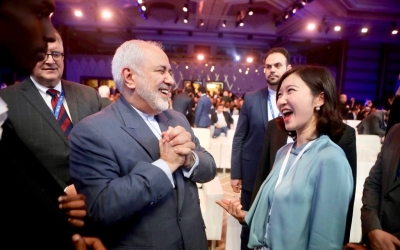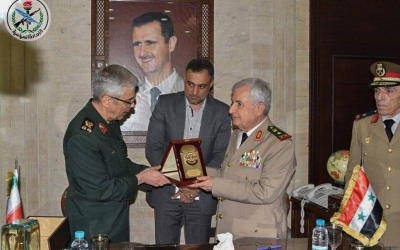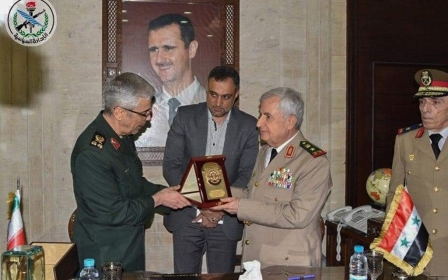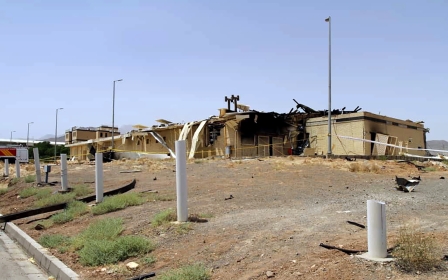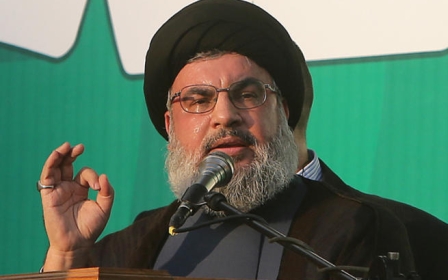Iran and China draft 25-year trade and military agreement: Report
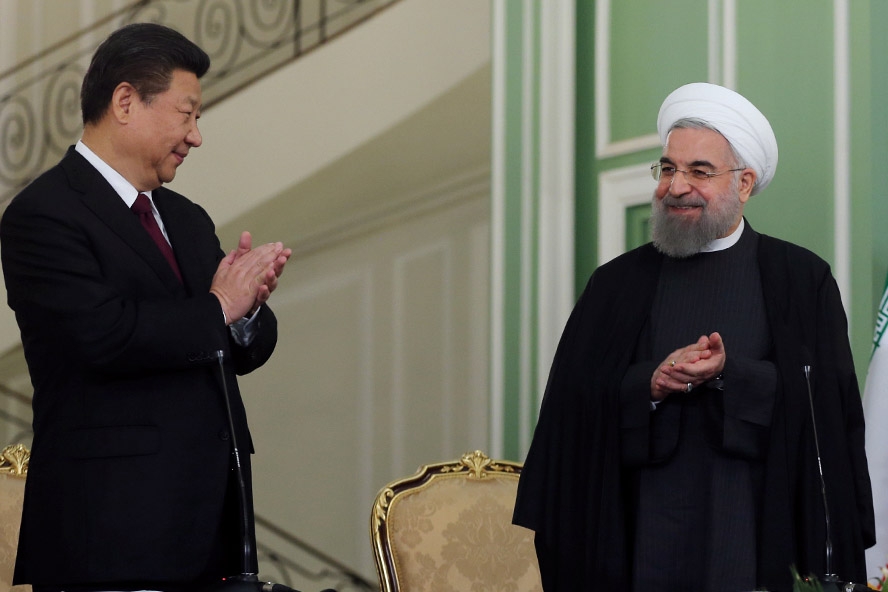
Iran and China have drafted an economic and security partnership that would allow for billions of dollars in Chinese investments in energy and other sectors - including the military - despite the Trump administration's efforts to isolate Tehran from the global economy.
The partnership between the two countries was detailed in an 18-page document seen by the New York Times, and showed that China would expand its presence in Iran's banking and telecommunications sectors as well as railways, ports and other projects.
In exchange for this investment, Iran would supply Beijing with a heavily discounted supply of oil over the next 25 years, an Iranian official told the newspaper.
China is a key market for Iranian crude oil exports, which have been dampened by US economic sanctions imposed after Washington's 2018 withdrawal from the 2015 Joint Comprehensive Plan of Action (JCPOA) nuclear deal with Tehran.
Two people briefed on the China deal told the New York Times it would be worth $400bn - with over 100 projects detailed in the document.
"Two ancient Asian cultures, two partners in the sectors of trade, economy, politics, culture and security with a similar outlook and many mutual bilateral and multilateral interests will consider one another strategic partners," the document reads.
Iran's Foreign Minister Mohammad Javad Zarif said the partnership proposal would be submitted to parliament for final approval, and two officials said that it had the support of Iran's Supreme Leader Ayatollah Ali Khamenei.
Supporters of the strategic partnership argue that the country's limited economic options, its free-falling currency and US sanctions make the deal with China a lifeline for the country.
Still, critics have pointed out that China's other investment deals within its Belt and Road initiative in Africa and Asia have left those nations in major debt and duty-bound to the wishes of the Chinese government.
Deepening military cooperation
The draft document also details a deepening military relationship between China and Iran.
The deal would allow China to gain a foothold in a region where the US has had strategic residence for the last few decades.
The proposal outlines joint training and exercises, joint research and weapons development and intelligence sharing in "the lopsided battle with terrorism, drug- and human-trafficking and cross-border crimes".
It also proposes investment in two port facilities in Iran, along the coast of the Sea of Oman, which would add to an expanding list of ports that China has constructed along the Indian Ocean that give the country's military refueling stations running from the South China Sea to the Suez Canal.
China has been stepping up its military cooperation with Iran over the past decade. Since 2014, the People's Liberation Army Navy has visited Iran and participated in at least three military exercises.
The expansion of military cooperation will be viewed with alarm in Washington. US warships have already tangled with Iranian forces in the Gulf and also deal with China's internationally disputed claim to much of the South China Sea.
The Pentagon declared China an adversary in its national security strategy in 2018.
"The United States will continue to impose costs on Chinese companies that aid Iran, the world's largest state sponsor of terrorism," a State Department spokeswoman told the New York Times.
Washington is also currently pushing to extend a UN arms embargo on Iran that is set to expire in October.
Middle East Eye propose une couverture et une analyse indépendantes et incomparables du Moyen-Orient, de l’Afrique du Nord et d’autres régions du monde. Pour en savoir plus sur la reprise de ce contenu et les frais qui s’appliquent, veuillez remplir ce formulaire [en anglais]. Pour en savoir plus sur MEE, cliquez ici [en anglais].


